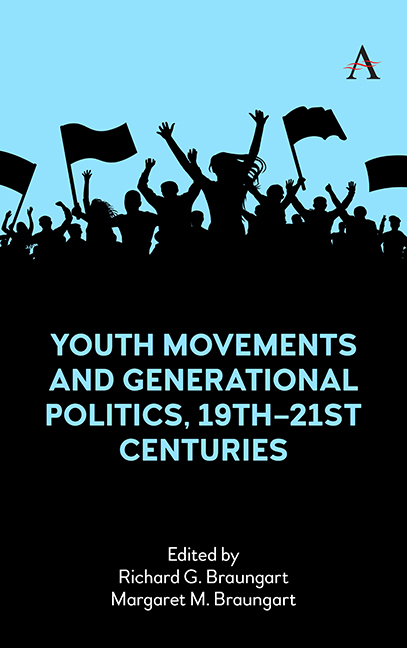19 - Conceptional and Methodological Approaches to Studying Life Course and Generational Politics
Published online by Cambridge University Press: 18 November 2023
Summary
This essay first examines the major conceptual approaches to the study of life course and generational politics: non-life course and non-generational politics, life-course politics, generational politics, and the interactive life course and generational politics approach. Second, the various research designs employed to study life course and generational politics are outlined, including the cross-sectional design, longitudinal design, time-series design, and the aging-cohort-period design. An evaluation of the methodological shortcomings and suitability of the research designs suggests that certain research strategies are more appropriate than others to the various conceptual approaches. The interactive life course and generational political perspective in particular provides considerable opportunity to explore the interplay between life-cycle development and history, and a fruitful methodological strategy for using this approach is to combine the life-history technique with generational analysis within a comparative framework. Illustrations from empirical investigations of life course and generational politics are provided throughout the essay.
Life Course and Generational Politics
The attempt to explain political behavior has been an important part of Western philosophy, and though a variety of interpretations have been offered over the centuries, one of the most enduring explanations has been age. The ancient Greeks were among the first to identify differences in life-cycle development, which they said had much to do with stability and change in society. Aristotle observed that political conflicts are due not only to the differences between rich and poor but to the struggle between fathers and sons (Feuer, 1969; Marias, 1970; Nash, 1978). In the nineteenth century, the French positivists, in their attempt to identify various “laws” of society, pointed to the importance of the different biological ages of life as key conditioning forces for human experience. In 1839, Comte noted that the duration of human life plays a major part in social evolution, as one generation gives way to another (Jansen, 1975). The romantic-historicists took issue with the positivists’ emphasis on “biotic” generations and stressed instead the importance of historical experiences which influence the mentality (mentalité collective) of each generation (Marias, 1968; Esler, 1982, 1984).
- Type
- Chapter
- Information
- Youth Movements and Generational Politics, 19th-21st Centuries , pp. 493 - 520Publisher: Anthem PressPrint publication year: 2023

